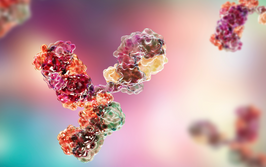This Week’s CGT News: Laughter and Funding for Cell Therapy Research
Our latest news roundup reports on research targeting solid tumors, a personalized CRISPR gene therapy for a young infant, a comedy show to raise money for CAR T cell therapy development, and more
| 4 min read | News

Images sourced from AdobeStock.com
Children’s Hospital of Philadelphia (CHOP), in collaboration with Penn Medicine, has treated an infant using a personalized CRISPR-based gene-editing therapy. The patient – less than 1 year old – was born with carbamoyl phosphate synthetase 1 deficiency, which disrupts the urea cycle and can lead to dangerously high ammonia levels in the blood.
The therapy was developed by a team led by Rebecca Ahrens-Nicklas, Director of the Gene Therapy for Inherited Metabolic Disorders Frontier Program at CHOP, and Kiran Musunuru, Professor of Cardiovascular Medicine at the University of Pennsylvania. After identifying the single-letter mutation in the infant’s CPS1 gene, the team designed a bespoke base-editing CRISPR construct to correct it. Rather than relying on the more common ex vivo editing approach, the team used lipid nanoparticles to deliver a base-editing CRISPR system straight to the liver, where CPS1 is normally active. The base-editing system was validated in preclinical models before proceeding to treatment under a compassionate use protocol.
The therapy was administered in February 2025 and so far, the results seem promising. The infant has already shown better metabolic control, improved tolerance to dietary protein, and a decreased need for medications that remove excess ammonia.
The case has been published in the New England Journal of Medicine and presented at the American Society of Gene & Cell Therapy meeting.
$18 million in funding for stem cell research
The Maryland Stem Cell Research Commission is allocating over $18 million in funding through the Maryland Stem Cell Research Fund (MSCRF) to support 52 investigators across academic institutions and private companies in the state. The awards target a wide range of therapeutic areas, including hematologic disorders such as sickle cell disease, metabolic conditions like diabetes, multiple cancer types, chronic pain, and diseases affecting cardiovascular, musculoskeletal, digestive, and neurological systems.
Among the recipients are companies including Seraxis, Britecyte, SereNeuro Therapeutics, and Diagnostic Biochips. Academic beneficiaries include Johns Hopkins University, the University of Maryland system (Baltimore, College Park, and Baltimore County campuses), and the Uniformed Services University of Health Sciences/Henry Jackson Foundation. The University of Maryland Eastern Shore also received its first stem cell research grant, expanding the network of institutions engaged in regenerative medicine within the state.
Since its inception in 2006, the MSCRF has distributed over $200 million across more than 650 projects.
Laughter funds CAR T research
Memorial Sloan Kettering Cancer Center’s (MSK) 2025 Comedy vs Cancer show has raised over $2.3 million to support blood cancer research. The show was hosted by Nick Kroll and included performances by Seth Meyers, Amy Schumer, and John Mulaney.
“Laughter has a way of cutting through the heavy stuff and is a great unifier,” said Kroll. “Raising money to fund research for rare blood cancers can still be joyful, and we dedicate each year of Comedy vs Cancer to doing just that – creating a night of laughter to rally around a cause that affects so many."
The funds raised from the 2024 event have gone towards a clinical trial for a CAR T cell therapy for lymphoblastic leukemia that does not require chemotherapy support.
"Comedy vs Cancer is more than a night of laughs; it's become one of the most meaningful moments of the year for us at MSK," said Ivan Maillard, Head of the Division of Hematologic Malignancies and Laurence Joseph Dineen Chair in Leukemia Research at MSK.
Supporting research into solid tumors
CDMO ScaleReady has awarded G-Rex Grants to two principal investigators at the University of Southern California (USC) and the Children's Hospital of Los Angeles (CHLA) to support cell therapy programs targeting solid tumors. The initiative provides financial support, technical resources, and access to G-Rex bioreactor systems to facilitate translational research and clinical manufacturing of cell and gene therapies.
Shahab Asgharzadeh, Director of the Neuroblastoma Basic and Translational Program at CHLA, received a $250,000 grant to further preclinical development of a chimeric TGFB signaling receptor (CTSR)-enabled anti-B7H3 CAR-T cell therapy intended for pediatric and adolescent patients with relapsed or refractory solid tumors. The work is also supported by a California Institute for Regenerative Medicine (CIRM) CLIN1 grant.
Preet Chaudhary, Professor of Medicine and Chief of the Nohl Division of Hematology and Center for Blood Diseases at USC, was awarded $200,000 to support process development and IND-enabling activities for a synthetic immune receptor (SIR)-engineered T cell therapy targeting solid tumors. This project also receives backing from a CIRM TRAN1 grant.



















